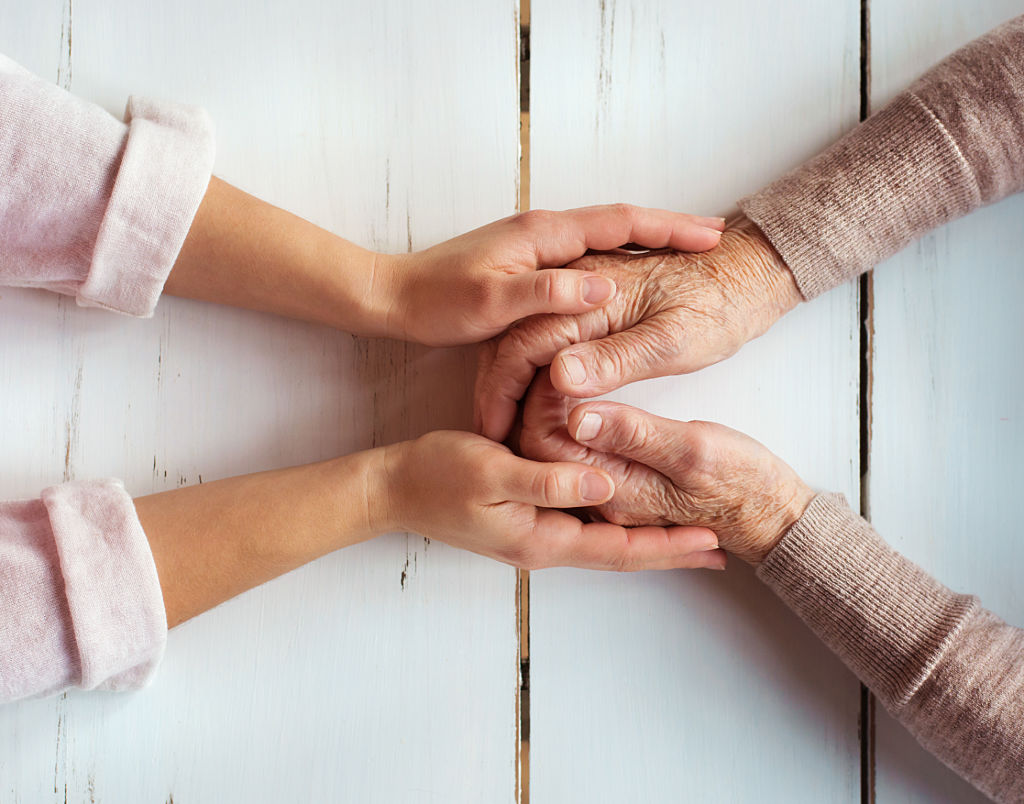Breast Cancer Surgery: Patient Care Resources
Surgery is a common treatment for breast cancers. The type of surgery your team recommends is determined by the size of the tumor and other factors. Your doctor may recommend drug therapy or radiation therapy before surgery to shrink the tumor, so it is easier to remove. Drug therapy or radiation therapy after surgery is common.
Surgeries vary in the amount of tissue doctors remove. If surgery provides a good treatment option, you will meet with a surgical oncologist to develop a plan. Surgery is different for every patient. Your surgical oncologist (cancer surgeon) will work with you to determine the least invasive and most effective surgery for your condition. We also help you prepare for your surgery and your recovery at home.
WHAT TO KNOW WHEN ABOUT BREAST CANCER SURGERY
Where You Are In Your Care
1Understanding Your Condition
2Getting Your Diagnosis
3Planning Your Treatment
4Undergoing Treatment & Follow-Up
Surgery is a very effective treatment for breast cancer, especially in the disease’s early stages. Treatment goals for breast cancer surgery are to:
- Eliminate as much of the cancer as possible, by removing either the tumor and its margins (narrow border of surrounding tissue) or the entire breast
- Remove one or more lymph nodes under the arm to check them for cancer
- Restore the breast’s shape after removing the cancer
- Relieve symptoms of advanced cancer that has spread (metastasized) to other parts of the body
Surgery removes tumors and is used during certain types of biopsies. Your care team will discuss the different options with you to help you decide what’s right for you. The two main types of surgery for breast cancer are breast-conserving surgery and mastectomy
Choosing a Breast Cancer Surgery
Every person is different, so treatments that work for one person may not be right for another. Your surgeon will help you decide whether a lumpectomy or a mastectomy may be right for you, based on factors such as:
- Type and stage of cancer
- Presence of genetic mutations such as BRCA 1 or BRCA 2
- Your age, overall health, and personal preferences
For breast reconstruction, remember that it represents a cosmetic decision, rather than a medical one. Your feelings and preferences can provide guidance. If you need help deciding, talk with a member of your care team.
When deciding between lumpectomy and mastectomy, you may want to consider:
- Risk reduction: Because a mastectomy removes more breast tissue than lumpectomy, it can reduce your risk of breast cancer developing or recurring (coming back).
- Need for radiation therapy: People who have a lumpectomy usually need radiation therapy afterward, while people who have a mastectomy may not.
- Recovery time: The recovery time for a lumpectomy is much shorter than for a mastectomy, typically taking 2 to 4 weeks vs. 3 to 6 weeks. A lumpectomy is usually an outpatient procedure, whereas a mastectomy requires a hospital stay of 1 to 5 days.
- Body image: Since lumpectomy saves a large portion of the breast, including the nipple and areola, you typically do not need breast reconstruction surgery afterward.
In general, our surgical recommendations are:
- Lumpectomy: These less-invasive techniques may be an option for you if you have an earlier stage of cancer, such as stage I, II, or sometimes III.
- Mastectomy: A mastectomy is usually appropriate for people at higher risk for breast cancer because of a genetic mutation or family history may opt for a total or double mastectomy as a preventive measure.
- Lymph node surgery: Removal of lymph nodes to test for cancer may be appropriate for people with all stages of cancer.
Reconstruction can restore the look, shape, and feel of your natural breast after surgical treatment. While typically done after a mastectomy, some women may want reconstruction after a lumpectomy to ensure that both breasts match.
A plastic surgeon performs breast reconstruction either at the same time as surgical treatment or later, in a separate procedure. The timing depends on your individual case and preferences. The types of breast reconstruction are:
Flap (or autologous): Uses skin, fat, and sometimes muscle tissues from your own body
Implant: Uses saline (salt water) or silicone (synthetic gel) implants
If you choose not to have breast reconstruction, you can wear a prosthesis (a breast form) if you want the appearance of breasts.
If you need treatment with surgery, our surgical oncology team will manage your care. You are also an important team member. Help us help you by asking questions and raising your concerns.
At the Stanford Cancer Center, we offer multidisciplinary care for breast cancer. That means your doctors, nurses and other members of your care team work together to support you before, during and after treatment
Your surgical oncology team includes a number of cancer experts:

Your Doctors
Surgical Oncologist
These surgeons specialize in treating cancer through traditional (open) and minimally invasive surgery. Surgical oncologists perform biopsies (taking tiny tissue samples) to test for cancer. They also surgically remove tumors, some surrounding breast tissue, and lymph nodes to evaluate them for the presence of cancer.
Breast Reconstructive Surgeon
If you have breast cancer surgery and choose to have your breast restored, a reconstruction surgeon will work on its size, shape, and appearance. Our breast reconstruction surgeons are plastic surgeons with specialty training in reconstructing (rebuilding and reshaping) breasts. If you choose breast reconstruction, you will meet with your reconstruction surgeon soon after you meet with your breast cancer surgeon.
View All {0} Breast Reconstructive SurgeonsOther doctors on your care team
Anesthesiologist
An anesthesiologist is a doctor who specializes in using medications to block pain, help you relax, or make you unconscious for surgery. Anesthesiologists also maintain your vital functions such as breathing, blood pressure, and heart rate during surgery. Depending on the type of surgery you have, you may need local (small area), regional (larger area), or general (overall) anesthesia
Radiologist
A radiologist is a doctor who specializes in using imaging techniques including X-ray, ultrasound, computed tomography (CT), and magnetic resonance imaging (MRI). Our radiologists have additional training and experience in breast cancer care. These doctors interpret imaging results and take biopsies (when needed) to help confirm a diagnosis. You may not meet your radiologist, since these doctors usually work behind the scenes to determine your diagnosis.
View All {0} RadiologistsPathologist
Your pathologist performs and reads laboratory tests to determine the type and stage of breast cancer present. These doctors have special training to detect and diagnose cancer. They use a microscope to examine tissue samples taken during a biopsy. As with radiologists, you may not meet your pathologist.
View All {0} Pathologists
Extended Care Team
This health care provider works in collaboration with your medical oncologist to help care for you during your treatment and follow up. An APP can be a physician’s assistant (PA) or nurse practitioner (NP). A nurse practitioner is an advance practice nurse who has completed graduate education and is trained to do physical exams, diagnose, prescribe, and treat medical conditions. Our APPs can help manage your side effects and help carry out your treatment plan safely. You may alternate visits between your APP and oncologist.
These specialized registered nurses provide one-on-one support to guide you through your breast cancer journey. MCCs serve as your point of contact to help manage your care, from your first appointment through follow-up visits. They assess your needs, answer your questions, make referrals, coordinate appointments, and provide patient education.
This team member helps with nonmedical issues such as scheduling your appointments, managing your paperwork, and requesting your medical records and disability paperwork.
This team member greets you at the front desk and registers you for your appointments.
This staff member supports you and your care team by recording details of your clinic visits, which may include your current medical condition, your past medical history and clinical care, pertinent details of your habits and lifestyle, and details of your imaging and lab work.
This type of doctor is doing postgraduate studies specializing in the care of patients with breast cancer.
This doctor has graduated from medical school and is in training (also called residency) at Stanford. Residents in their first year are also called interns.
This health care provider is a student enrolled in Stanford’s medical school who is studying to become a doctor.
This team member helps you during your doctor visits by:
- Bringing you to your exam room after you check in for an appointment
- Providing you with a hospital gown or other clothing for your physical exam
- Taking your vital signs before your doctor sees you
A staff member calls you before your first appointment to:
- Provide information that you need to know to prepare
- Provides a list of what you need to bring
- Helps gather your medical records
- Using the restroom
- Feeding yourself
- Managing your medications
- Driving
If you are meeting with a surgical oncologist or reconstruction surgeon or having surgery, a surgery scheduler will call you to arrange the details.

Support Services
PATHWELL SUPPORT SERVICES
PathWell is your connection to personalized support services before, during, and after your treatment. Our teams of doctors, nurses, social workers, spiritual care providers, nutrition experts, financial counselors, and more work with your oncology team to provide comprehensive specialized care to you and to your family.
- 650-498-6000 Ask for the PathWell team
Stanford Health Library
For confidential help with your health care questions, contact the Stanford Health Library. Professional medical librarians and trained volunteers, access journals, books, e-books, databases, and videos to learn more about medical conditions, treatment options, and related issues.
- 875 Blake Wilbur, Palo Alto: 1st floor near the cafe, 650-736-1960
- South Bay Cancer Center: 3rd floor lobby, 408-353-0197
Email us your questions: healthlibrary@stanfordhealthcare.org
At your first appointment, you will need the team who will take care of you throughout your treatment. During this visit, your doctor will discuss your medical history with you in detail.
